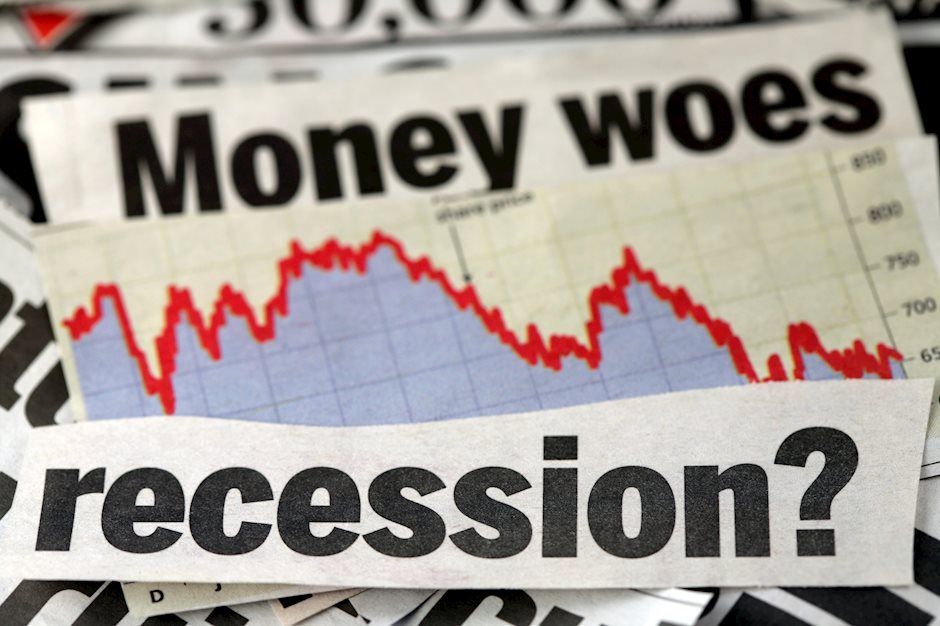US economy does not appear to be headed for recession

Outlook: The dollar gained a bit after Mr. Powell’s second day of testimony (on rising yields), even though he said nothing new in the same speech the day before that purportedly sent the dollar down, which made no sense. Today the press is using Powell’s hawkishness to “explain” declines in stock markets except where they are rising.
Today the dollar’s recovery is attributed to lousy PMI’s in Japan, Australia, the UK and the eurozone, and that may actually be true—although the euro started to retreat during the Asian session, well ahead of the release. So explainers can claim it was in anticipation of the release, or perhaps the start of another round of risk-off on Australia’s tepid PMI.
In a nutshell, the US has plenty of possibly recession-indicating data, including the regional Fed surveys, but overall the economy does not appear to be headed for recession. The WSJ top headline (online) is “Where’s the recession we were promised?”
The UK and Eurozone are both almost surely headed for recession. The US is not. Again we point out that the Atlanta Fed’s GDPNow is still in the pink at 1.9% for Q2 (reported on 6/20). It would take an improbable crash in activity to make that go negative this year.
The FT has an excellent summary: “Global central banks are entering a new phase in their battle with inflation as economists warn that recessions will be the price of achieving shared 2 per cent goals.
“Headline rates of inflation across most of the world’s economies have fallen back sharply since the autumn but core rates — which exclude volatile categories such as energy and food — remain at or close to multi-decade highs. These rates, seen as a better gauge of underlying price pressures, have sparked concern that central banks will struggle to hit their targets without wiping out growth.
“’The next leg of the improvement in the inflation numbers is going to be harder,’” said Carl Riccadonna, chief US economist at BNP Paribas. ‘It requires more pain, and that pain likely involves a recession in the back half of the year.’
“Torsten Slok, chief economist at Apollo Global Management, added: ‘The only way to get inflation down to 2 percent is to crush demand and slow down the economy in a more substantial way.’”
If so, the US has a fighting chance to avoid recession when the others do not. And it’s rates diving down that makes the point, along with commodities, including oil. See the table from Trading Economics.
Forecast: The current moves may be a bit overdone—but maybe not. It’s in keeping with the general overview of the US economy having more resilience than anyone ever expects, while other economies are less so. Long-term, the market rewards growth. Weirdly, the Fed funds futures market still does not believe in two hikes before Christmas, possibly because of fear more regional banks will hit the wall. But in FX, traders are starting to believe in less hiking from the eurozone in particular, where the ECB fears recession.
This is an excerpt from “The Rockefeller Morning Briefing,” which is far larger (about 10 pages). The Briefing has been published every day for over 25 years and represents experienced analysis and insight. The report offers deep background and is not intended to guide FX trading. Rockefeller produces other reports (in spot and futures) for trading purposes.
To get a two-week trial of the full reports plus traders advice for only $3.95. Click here!
This is an excerpt from “The Rockefeller Morning Briefing,” which is far larger (about 10 pages). The Briefing has been published every day for over 25 years and represents experienced analysis and insight. The report offers deep background and is not intended to guide FX trading. Rockefeller produces other reports (in spot and futures) for trading purposes.
To get a two-week trial of the full reports plus traders advice for only $3.95. Click here!
Author

Barbara Rockefeller
Rockefeller Treasury Services, Inc.
Experience Before founding Rockefeller Treasury, Barbara worked at Citibank and other banks as a risk manager, new product developer (Cititrend), FX trader, advisor and loan officer. Miss Rockefeller is engaged to perform FX-relat



















